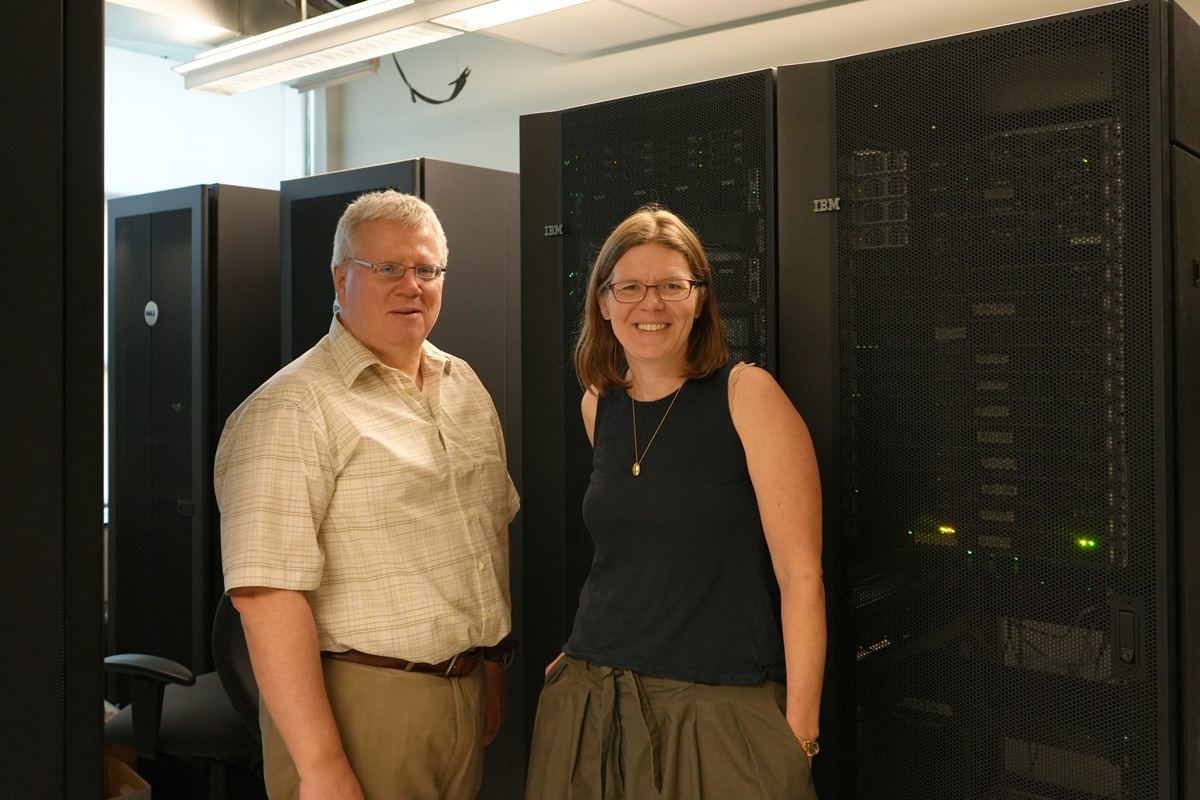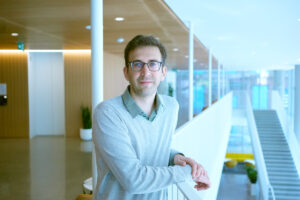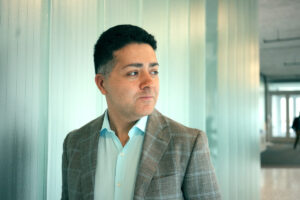
AUGUST 19, 2024 • By Matthew Tierney
Two ECE professors — Hans-Arno Jacobsen, the Jeffrey Skoll Chair in Computer Networks and Innovation, and Natalie Enright Jerger, the Canada Research Chair in Computer Architecture — are part of a team behind a new initiative that aims to train a generation of computer and data scientists who combine comprehensive technical skills with sustainability awareness.
The team’s lead, Professor Bettina Kemme of McGill University, is joined by Jacobsen, Enright Jerger, Professor Semih Salihoğlu of the University of Waterloo, Professor Oana Balmau of McGill University and Professor Essam Mansour of Concordia University.
Their project, Sustainable Data Systems for Data Science (SDSDS), recently received $1.6 million in funding from the NSERC CREATE program.
As with many countries, Canada has ramped up its investment in artificial intelligence and machine learning to meet growing demand across industries in all sectors of society. However, these techniques are resource-intensive and will only become more so as they grow in sophistication.
To keep this technology investment in line with Canada’s vision for a sustainable carbon-neutral society, the team proposes training future computer systems designers to adopt a green approach when developing data analytics platforms and systems. This perspective would apply to all aspects of the life cycle of development and deployment, such as hardware infrastructure, software systems and application domains, and it must be factored in from the outset.
SDSDS plans to introduce cross-university seminars on sustainability challenges and offer courses on sustainable data science, along with summer schools focused on energy-efficient software and hardware platforms. SDSDS also intends to connect students directly with industry through internships and applied research projects, exposing them to present challenges and facilitating an ongoing exchange between academia and industry.
“A majority of students are unaware of how sustainability informs responsible development of platforms and systems because, frankly, there just aren’t many courses or learning paths available to them in this area,” says Enright Jerger. “Another crucial component of this project is to equip our students with knowledge transfer strategies so they can seed these ideas in the workforce. Today’s trainees becoming tomorrow’s trainers.”
“The awareness about AI’s environmental impact is growing, but there is an expertise gap on how to address this very real problem, not just after the fact, but at inception,” says Kemme. “SDSDS aims to bridge this gap and prepare for the future resource demands of AI-driven industries.”
"The potential of AI and machine learning systems are seemingly limitless,” adds Jacobsen, “yet the true genius lies in building machine learning systems founded on sustainability principles. That’s real innovation.”


